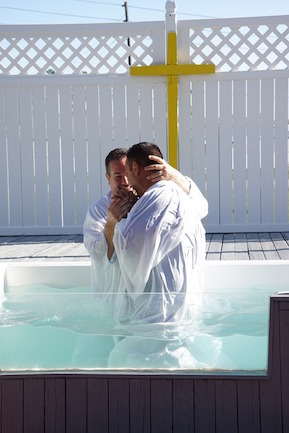Prayer in the New Testament by Myra Kahn Adams for Town Hall
Thanks for joining us as we conclude our two-part series on prayer. Last week we discussed “Prayer in the Hebrew Bible” and today, the New Testament.
Jesus taught his disciples the do’s and don’ts of prayer in Matthew 6:5-9. He discouraged “show-off praying,” saying, “ ‘And when you pray, do not be like the hypocrites, for they love to pray standing in the synagogues and on the street corners to be seen by others.’ ”
Instead, Jesus encouraged private prayer: “‘But when you pray, go into your room, close the door and pray to your Father, who is unseen. Then your Father, who sees what is done in secret, will reward you.’ ” Jesus also taught that “ ‘your Father knows what you need before you ask him.’”
Support Our Site

Now is your chance to support Gospel News Network.
We love helping others and believe that’s one of the reasons we are chosen as Ambassadors of the Kingdom, to serve God’s children. We look to the Greatest Commandment as our Powering force.
Jesus warned against “babbling” prayers: “ ‘And when you pray, do not keep on babbling like pagans, for they think they will be heard because of their many words.’ ” Then, Jesus instructed his followers “how you should pray” and began to teach what is known as “The Lord’s Prayer”:
“‘Our Father in heaven, hallowed be your name, your kingdom come, your will be done, on earth as it is in heaven. Give us today our daily bread. And forgive us our debts, as we also have forgiven our debtors. And lead us not into temptation, but deliver us from the evil one’” (Matthew 6:9-13 NIV).
Notice something missing? A “final” verse appears in both the King James and New King James translations, and often recited in churches: “And lead us not into temptation, but deliver us from evil: For thine (yours) is the kingdom, and the power and the glory, forever. Amen” (Matthew 6: 9-13 KJV).
Over the centuries, there has been a little controversy about the final verse, omitted in many translations. The NIV Study Bible footnote explains: “Some late manuscripts add ‘for yours is the kingdom and the power and the glory forever, Amen.’” (For further study, here are Catholic and Protestant explanations.)




